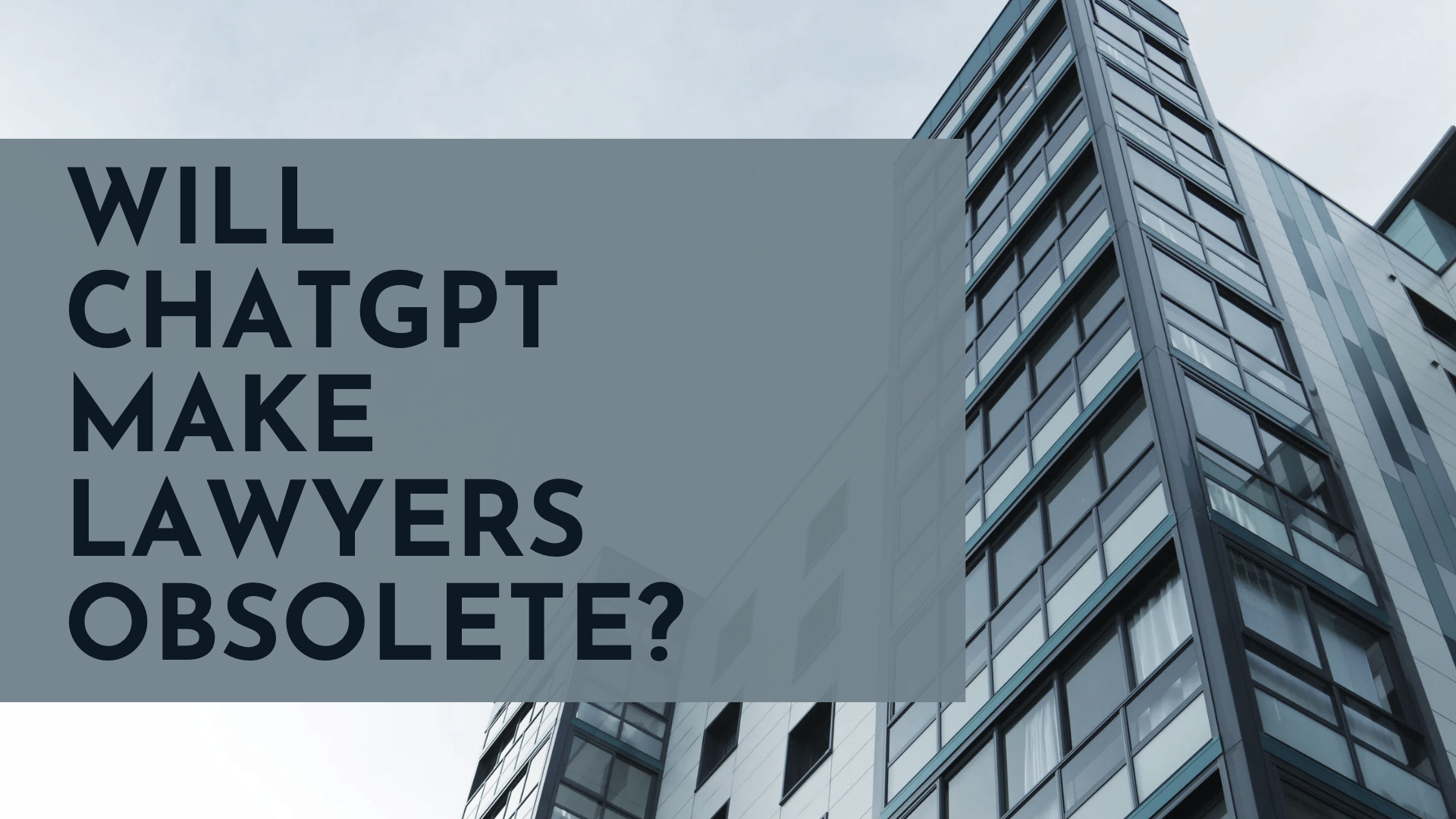Will ChatGPT Make Lawyers Obsolete? The AI Bot Promises to Revolutionize The Legal Profession
Key Points:
- ChatGPT is currently making global headlines, promising to disrupt nearly all industries.
- The notorious chatbot has shown tremendous capabilities, leaving legal clients and professionals wondering if AI will make lawyers obsolete.
- Some legal companies like DoNotPay are already attempting to leverage the tool to argue a case in the Supreme Court.
- Others are using it to address routine legal tasks such as drafting documents used in law offices and creating marketing content.
- While ChatGPT has shown impressive efforts, it’s unlikely the bot will wholly replace lawyers soon because its responses are not always accurate.
Recently, OpenAI — the artificial intelligence company developing ChatGPT — invited the public to a demo of its chatbot. After several media outlets sampled the new AI bot, headlines started popping up:
- The New York Times said, “The New Chatbot Could Change The World.”
- Forbes wrote, “ChatGPT — Let The New Generative AI Revolution Begin.”
- The New York Post went so far as to claim, “It’s the little engine that could bring down Google and perhaps the human race.”
With all that buzz, everyone in the legal industry started wondering if ChatGPT would replace lawyers and make them obsolete.
No one can accurately predict the future. However, we can shed some light on the roles ChatGPT may and may not perform in law firms by examining OpenAI, its notorious chatbot, ChatGPT, and how its development will affect the legal profession.

OpenAI At Its Core
OpenAI is a non-profit research company that has long voiced an ambitious vision for safely guiding artificial general intelligence as a way to benefit humanity. Elon Musk and Sam Altman founded the company in 2015 to create highly autonomous systems to outperform humans at most economically valuable works.
The company’s tools, such as ChatGPT, are free to use. However, the masses have flooded the platform, which might hinder you from getting in.
What Is ChatGPT?
ChatGPT is a chatbot that simulates human conversation to solve users’ queries. The advanced conversational capabilities of ChatGPT have created quite the buzz as the chatbot not only answers questions but can help people with tasks such as:
- Composing emails
- Essays
- Writing codes
- Creating content
- Solve complex math problems
The tool is very easy to use. You only have to type or speak your request on the ChatGPT website, and the AI bot will generate answers for you.
What ChatGPT Offers Lawyers
ChatGPT is showing a significant impact on the practice of law. The tool could disrupt the way legal professionals get work done.
While still under development, law firms can use ChatGPT to generate marketing content and draft documents always used in law offices, such as:
- Discovery demands in criminal cases
- Demand letters in contract cases
- Demand letters in personal injury cases
- Employment agreements for a vice president
- Technology job NDAs
However, your result from ChatGPT will be a very rough draft and require multiple edits.
The AI Lawyer — The Potential Threat to Human Lawyers
What appears to trouble many law professionals is the development of a bot lawyer. Some legal companies have already leveraged ChatGPT and created an AI lawyer to support their legal clients.
For instance, DoNotPay’s CEO, Joshua Browder, made a lofty offer of $1,000,000 to any lawyer that can let DoNotPay’s AI lawyer (that uses a variant of ChatGPT technology called OpenAI GPT-3) argue a case in front of the Supreme Court on their behalf. The bot has the making of an advocate.
The offer requires the human lawyer to wear AirPods and repeat the “AI lawyer’s” argument in a Supreme Court hearing.
One hurdle that limits lawyers from leveraging this offer is that the Supreme Court banned attendees from using electronic devices in the courtroom. However, the intent remains that AI will play a significant role in the legal system in the future.
Why ChatGPT is Not Likely To Wholly Replace Lawyers Yet
Beyond the limitation of using an electronic device in the courtroom, ChatGPT still faces some more obstacles in the legal industry, including:
- ChatGPT technology is still under development. As accurate as its responses might be, the natural language processor is not human and is not always accurate. Many people have reported receiving incorrect information from the tool, which might make it an unreliable lawyer. With the inability to create consistently accurate responses or legal arguments, it’s safe to conclude that the AI bot cannot replace human lawyers and make them obsolete at this stage.
- Lawyers have an ethical obligation to always take precedence over convenience. The law profession is responsible for ensuring its practices are conceived in the public interest and not advocating self-interested or parochial concerns of the bar. Every legal professional should observe the Rules of Professional Conduct. An AI lawyer might neglect these responsibilities and compromise the independence of the public interest and profession it serves.
- People are concerned about clients’ security, privacy, and privilege. Leveraging a ChatGPT lawyer involves data transmission between your legal firm and the chatbot. The bot stores personal and conversation data, which might raise privacy concerns.
Unless ChatGPT stops storing, sharing, and using sensitive information from your legal firm, it remains an illegible option to replace human lawyers.
How To Adopt Legal Tech Responsibly
While fully implementing ChatGPT faces some ethical and compliance hurdles, responsible technology deployment can positively affect your business performance. Using technology correctly can streamline your legal tasks, help you imprint your expertise on tasks that matter most, and save you time.
However, you should assess and implement technology responsibly to prevent you from breaching your ethical obligations, protect your client’s interest, and build a good reputation. In the law, a good reputation will give you more influence than any amount of short-term relevance.
ChatGPT Is Not Ready for Prime Time Yet
Artificial intelligence isn’t going to replace human lawyers any time soon. While AI chatbots show pretty solid effort, it’s safe to conclude that the bot is unlikely to put lawyers out of work, now or ever.
However, for more routine legal tasks, ChatGPT offers a significant potential to address access to justice questions, making legal services available to people with limited means.
Contents
- 1 Will ChatGPT Make Lawyers Obsolete? The AI Bot Promises to Revolutionize The Legal Profession
- 2 OpenAI At Its Core
- 3 What Is ChatGPT?
- 4 What ChatGPT Offers Lawyers
- 5 The AI Lawyer — The Potential Threat to Human Lawyers
- 6 Why ChatGPT is Not Likely To Wholly Replace Lawyers Yet
- 7 How To Adopt Legal Tech Responsibly
- 8 ChatGPT Is Not Ready for Prime Time Yet



